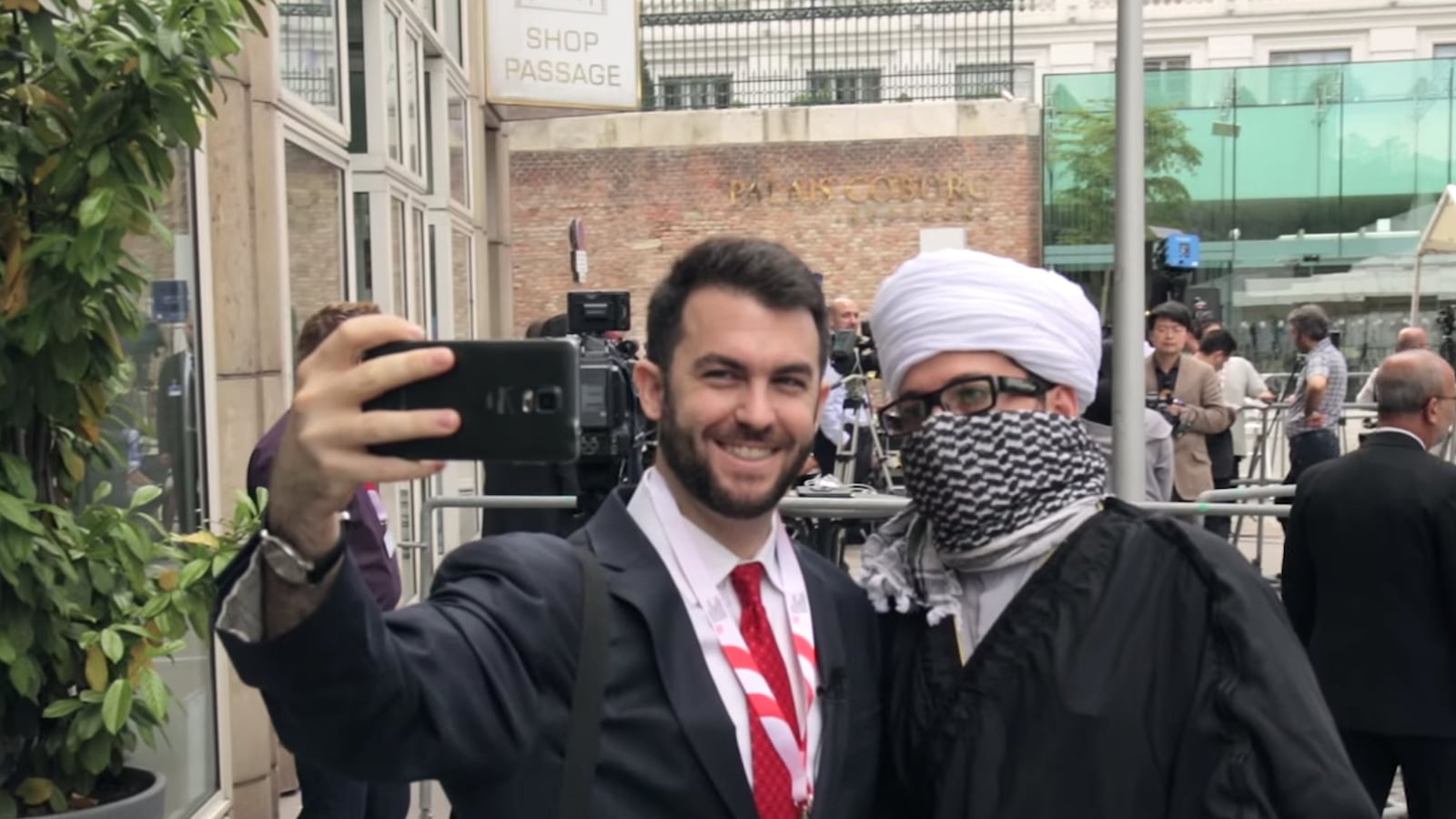VIENNA, Austria — On the eve of a nuclear deal with Iran, I flew to the negotiations here in Vienna to cause as much trouble as possible. I signed a mock human-rights deal with a fake ayatollah and asked Iran’s real diplomats who their favorite political prisoners were. I sarcastically congratulated officials on agreeing to reduce the rate of hangings in Iran from once every two hours to once every two and a half hours.
The diplomats were not amused. While I confronted a foreign ministry official, the son of Iran’s former health minister grabbed my arm, threatened to call security, and tried to evict me by force from the Marriott hotel. But this was Vienna—not Tehran—and so I stayed put using satire to highlight Iran’s gruesome human-rights record.
Diplomats of a regime which hangs gays, jails bloggers, and tortures human-rights activists should never be able to step foot outside their embassies without a torrent of protest.
On Friday, Iranian-American scholar Reza Aslan wrote, “We must not ignore Iran’s terrible human rights violations. But if we want to actually do something about those violations—rather than simply complain about them—we should support the nuclear negotiations.” A deal will “empower moderates in Iran, strengthen Iranian civil society and spur economic development.” Trade will “give Iran’s leaders the incentive to behave responsibly.”
Many human-rights activists—myself included—take a different view. While Aslan’s theory sounds nice, there is little evidence to support it. Did North Korea moderate after it signed a nuclear deal in 1994? Were moderates empowered when Gaddafi gave up his nukes in 2003? Do China's many trade deals with the U.S. stop them from denying free speech to over a billion people and jailing a Nobel Prize winner? Did engaging Saddam in the 1980s stop him from committing genocide? Did a chemical weapons agreement with Assad disincentivize him from murdering hundreds of thousands of people?
Not only did these regimes not moderate, in many cases their human-rights violations worsened in scope and brutality after a deal.
Besides, as an Iranian journalist who writes for state-run media assured me, human rights are completely off the table in these negotiations. But why? Former Pentagon arms negotiators told me that in their meetings with the Soviets in the 1980s, they constantly raised the names of jailed activists like Yuri Orlov and Natan Sharansky.
Those who think nukes and human rights can be uncoupled should hear the stories of Iran’s many political prisoners—cartoonists, journalists, lawyers, and bloggers. It is heartbreaking to see the family of Amir Hekmati, a former U.S. Marine jailed on trumped-up charges in Iran, casing the Marriott lobby pleading with media to listen.
With or without nukes, the Iranian regime denies 80 million people freedom of speech, press, association, religion, and sexuality—not to mention women’s rights.
Tyrants don’t release political prisoners for fun. Terrorists don’t stop when you give them money.
Regardless of whether or not Iran signs a deal, remember the many human-rights activists jailed in Iran today. When they are free, the world will have no reason to fear Iran. But how can a regime be trusted which does not even trust its own people?






